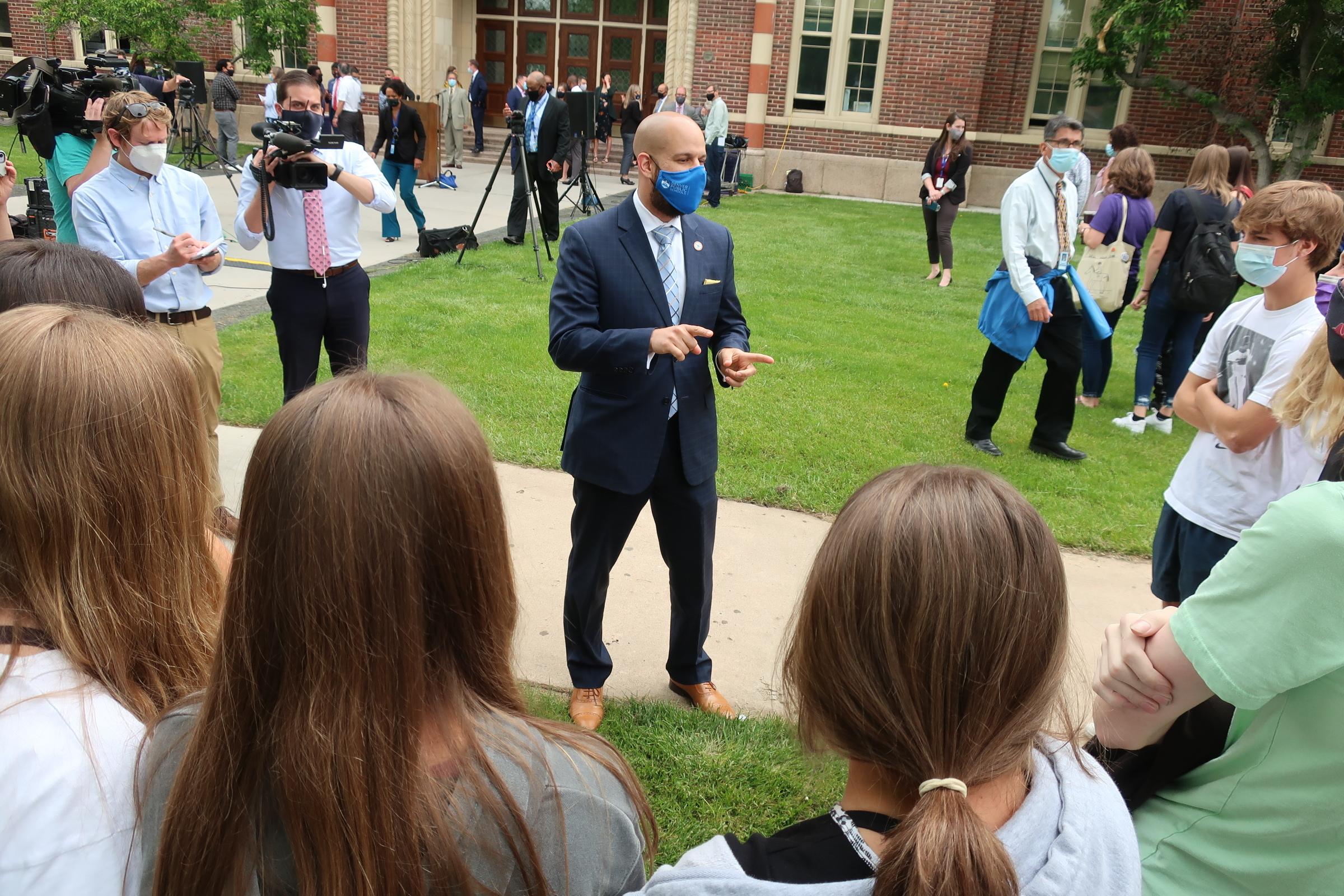While Alex Marrero says he's keeping abreast of the ever-changing guidelines being issued by the Centers for Disease Control regarding the use of masks, the new superintendent of Denver Public Schools admits science isn't the only consideration in play when it comes to deciding policy for the upcoming school year.
"We're still in deep deliberation," Marrero, who was hired in June, said in an interview with CPR News' Colorado Matters. Because of new CDC guidance, he has already received feedback both for and against a universal masking policy.
"Just so we're clear, just as we heard from (people) who are advocating for universal masking, in my inbox and as I stroll the streets, I'm hearing equal amounts or it's 50/50 split of those who are saying that masks need to go away and everything that they're justifying for their why.
"It's a very difficult position and our doctors have been incredibly supportive in terms of what we have done thus far. I want to honor that commitment, but also it's difficult when you have folks who you are servicing, i.e., students and parents, who may want something different.
Marrero, who comes to Denver after serving as an interim school superintendent in New York, said he expects a decision to be made by the end of the week.
Interview Highlights
How will DPS determine the academic impact of COVID-19?
"Unfortunately we do not have a true pulse. We do have data, but I'm not going to consider it valid data for a lot of reasons, in terms of the testing conditions [and] everything that goes along with testing sophistication. What we're going to do upon our entry, making sure that our students are safe, secure... immediately, we have to really take a pulse on where our students are and that's going to come via our interim assessment that was designed in-house.
"This is not an opportunity for folks to exercise their right, which is to opt out of any assessment. This is an opportunity for us to inform you as a parent and our students. So that's my plug to say, 'Please sit for the exam. It's internal. It's only going to be shared with you, our practitioners and making sure that we have a pulse so we can know what course of action individual planning needs to happen for each scholar.'"
What steps could be taken to catch students up academically?
"This can be seen as controversial because I'm not saying that we're taking away vacations, that we're extending the learning day, all I'm saying is that it's all on the menu, it's on the slate of possibilities. So we're talking about everything that goes along with an extended program, if needed. Pre-school, meaning before the school day starts at the school and those recesses that we have. It's all in play. And especially the summer, once we really have a pulse.
"The way I see it is, we've had an interruption to our normal way of instructing and learning as a student for 18 plus months, to think that we're going to bounce back in a year, I think is unreasonable considering not only is it interrupted to the academic progress, but the social, emotional and mental wellbeing that goes along with it."
What about criticism from Board of Education member Barbara O'Brien that the new superintendent is entering a "complicated environment"?
"She's absolutely correct. As soon as we make our leaps and bounds, systems are very different. Education is the same in terms of what we expect, in terms of concepts and structure for the most part. But in every shift that I've made, it's been a tremendous learning curve. So she's absolutely right.
"In terms of preparation, I cut my teeth in the largest school district in the entire nation -- I think folks may have skipped over that. And that's the New York City Department of Education. We're talking about 1.2 million students. Upon my exit, I should say, I was really heading the Bronx, which had way more than 93,000 students.
"But it's not about numbers, it's about systems. So, Director O'Brien is absolutely correct. What I can say is that this month has been an incredible honeymoon, but I'm calling it a honeymoon in terms of interacting with the folks in the community. So, it's less about the size because it's really a systems approach...But I've engaged with our Mexican and Chicano and Black communities, those who also had similar points (to O'Brien). I think the reception has been incredibly great. I would say, that's not an overstatement."
Listen to the full interview on the Colorado Matters' podcast.












